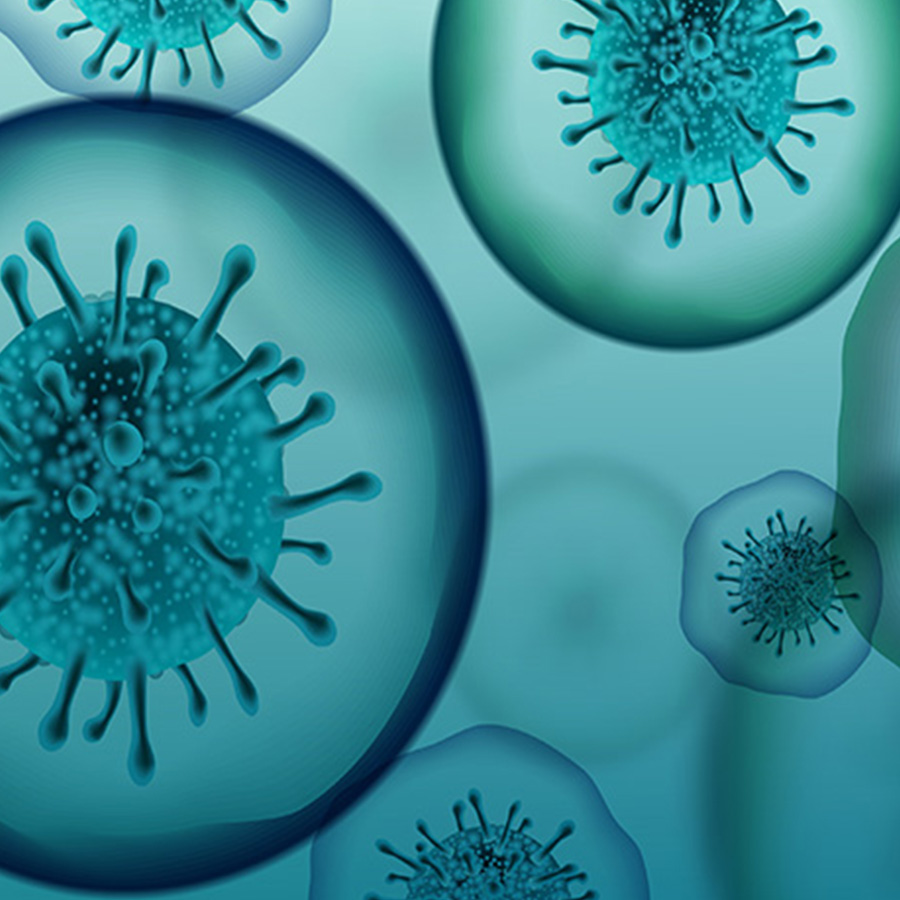What is COVID-19?
COVID-19 is an infection caused by a virus called "coronavirus" that primarily affects the respiratory tract (nose, throat and lungs).
What are the symptoms of COVID-19?
Here are some of the most common symptoms:
- sore throat
- coughing
- fever (38°C or higher)
- fatigue or weakness
- shortness of breath or breathing difficulties
- muscle aches
- loss of smell (anosmia) sometimes accompanied by a loss of taste (ageusia), and
- headaches
Symptoms may be absent, mild (similar to a cold) or more severe (such as those associated with pneumonia and pulmonary insufficiency).
Since the symptoms are very similar to those seen in other common respiratory infections, such as influenza (flu), bronchitis and pneumonia, it is recommended that anyone with symptoms of a respiratory infection be tested for COVID-19. It is also good practice to wear a mask in public places, and to avoid going out unnecessarily to protect those around you.
WHAT ARE THE POSSIBLE COMPLICATIONS OF COVID-19?
Although complications of COVID-19 are more common in people at risk, they can also occur in those who are young and healthy.
One of the possible complications of COVID-19 is what is known as long COVID. This is characterized by residual symptoms of infection such as fatigue, headaches, shortness of breath and difficulty concentrating, which persist for several weeks or even months after contracting the virus. COVID-19 can also result in complications such as pneumonia or respiratory failure, which can sometimes lead to hospitalization, and more rarely to death.
How is COVID-19 transmitted?
Usually, COVID-19 infects the nose, throat and lungs. It is most commonly spread by:
- close contact with an infected person who coughs or sneezes
- hand contact with contaminated surfaces or objects and then with the mouth, nose or eyes
HOW CAN I AVOID SPREADING THE VIRUS?
Hand hygiene
- Wash your hands often with soap and warm water for at least 20 seconds, especially when you have been in contact with other people or been in a public place.
- Use an alcohol-based disinfectant if soap and water are not available.
- Avoid touching your nose, mouth, and eyes without first washing your hands.
- Regularly clean frequently touched surfaces and objects with household disinfectants.
Respiratory etiquette
- When in a public place or with other people, cough or sneeze into the crook of your arm or a tissue to avoid spreading the virus.
- If you use a tissue, dispose of it immediately and then wash your hands.
Wearing a mask or face covering
- It is good practice to wear one when you are ill, in a public place, or near other people.
- It is important to note that wearing a mask is not a substitute for hand hygiene and respiratory etiquette.
HOW CAN I GET MY MEDICATION WITHOUT GOING TO THE PHARMACY?
If you have COVID-19, you may feel too ill or weak to go to the pharmacy. We remind you that your Jean Coutu-affiliated pharmacist-owners offer a variety of remote services if you prefer to stay at home. You can request a refill of your medication remotely, either by phone, on the web at www.jeancoutu.com, or on the mobile app. Additionally, most Jean Coutu-affiliated pharmacies offer a delivery service.
This advice is based on information available at the time this document was written.



